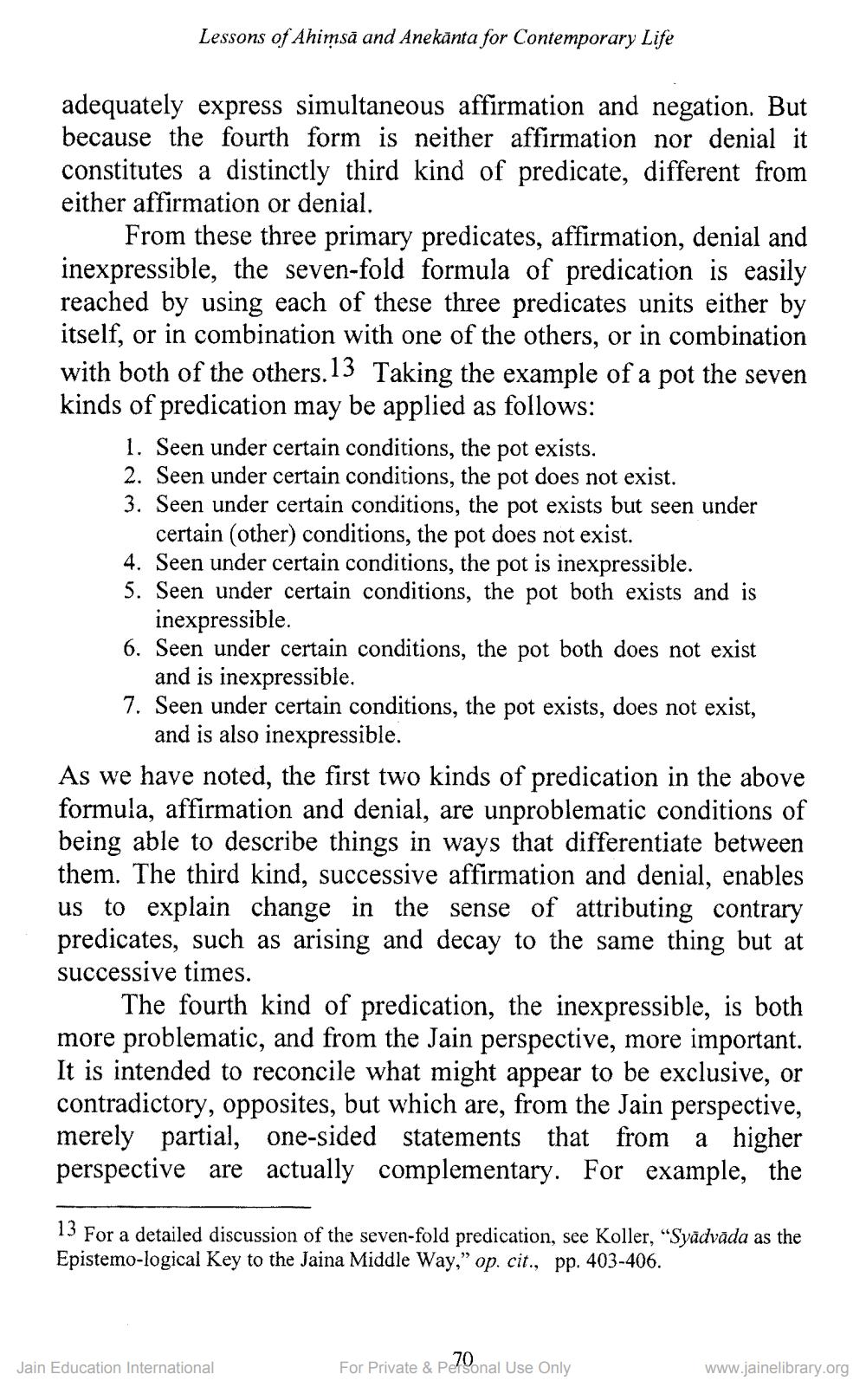________________
Lessons of Ahimsā and Anekānta for Contemporary Life
adequately express simultaneous affirmation and negation. But because the fourth form is neither affirmation nor denial it constitutes a distinctly third kind of predicate, different from either affirmation or denial.
From these three primary predicates, affirmation, denial and inexpressible, the seven-fold formula of predication is easily reached by using each of these three predicates units either by itself, or in combination with one of the others, or in combination with both of the others. 13 Taking the example of a pot the seven kinds of predication may be applied as follows:
1. Seen under certain conditions, the pot exists. 2. Seen under certain conditions, the pot does not exist. 3. Seen under certain conditions, the pot exists but seen under
certain (other) conditions, the pot does not exist. 4. Seen under certain conditions, the pot is inexpressible. 5. Seen under certain conditions, the pot both exists and is
inexpressible. 6. Seen under certain conditions, the pot both does not exist
and is inexpressible. 7. Seen under certain conditions, the pot exists, does not exist,
and is also inexpressible. As we have noted, the first two kinds of predication in the above formula, affirmation and denial, are unproblematic conditions of being able to describe things in ways that differentiate between them. The third kind, successive affirmation and denial, enables us to explain change in the sense of attributing contrary predicates, such as arising and decay to the same thing but at successive times.
The fourth kind of predication, the inexpressible, is both more problematic, and from the Jain perspective, more important. It is intended to reconcile what might appear to be exclusive, or contradictory, opposites, but which are, from the Jain perspective, merely partial, one-sided statements that from a higher perspective are actually complementary. For example, the
13 For a detailed discussion of the seven-fold predication, see Koller, "Syädvāda as the Epistemo-logical Key to the Jaina Middle Way,” op. cit., pp. 403-406.
Jain Education International
For Private & P79.nal Use Only
www.jainelibrary.org




